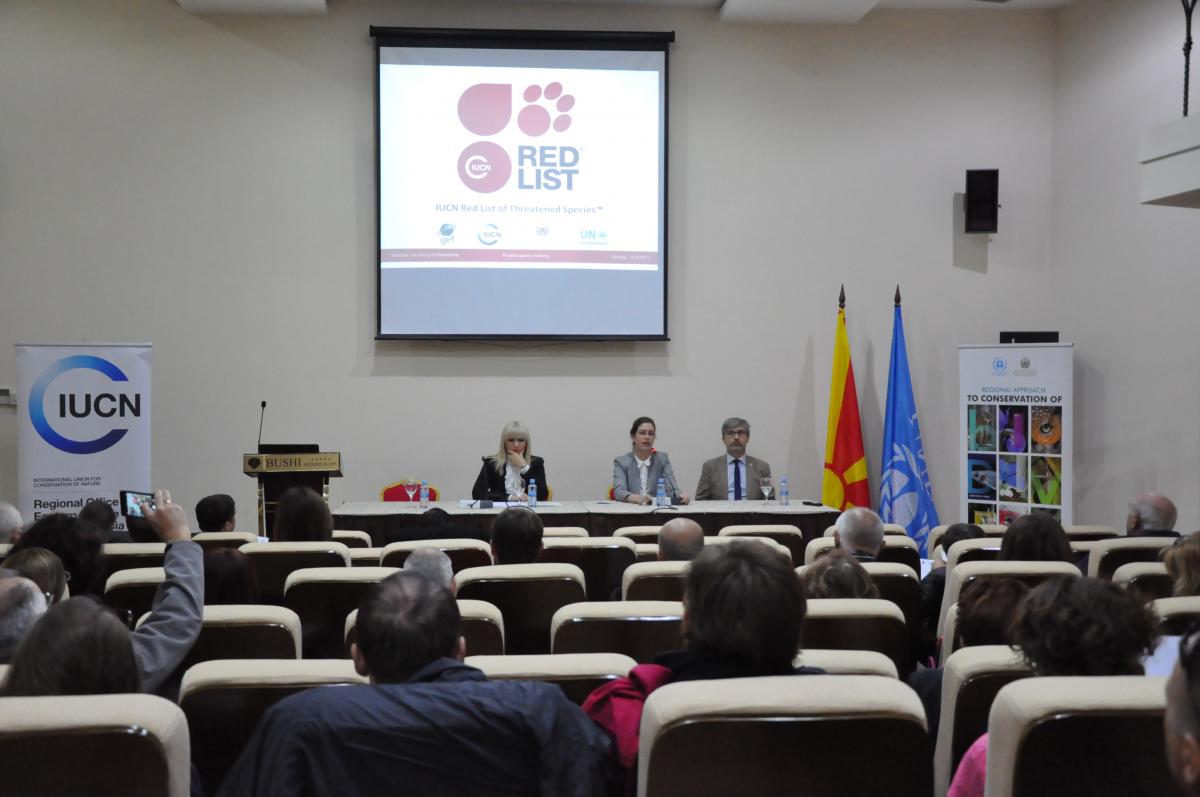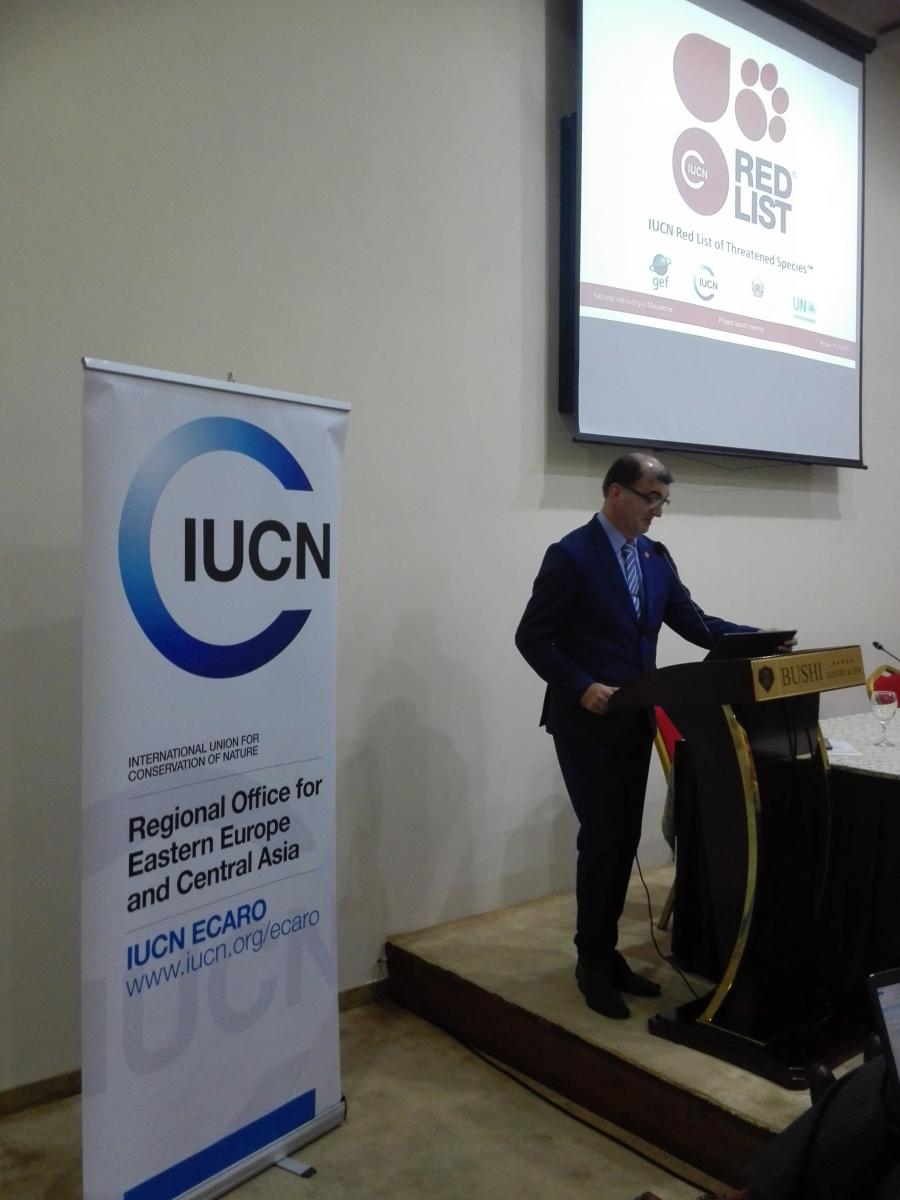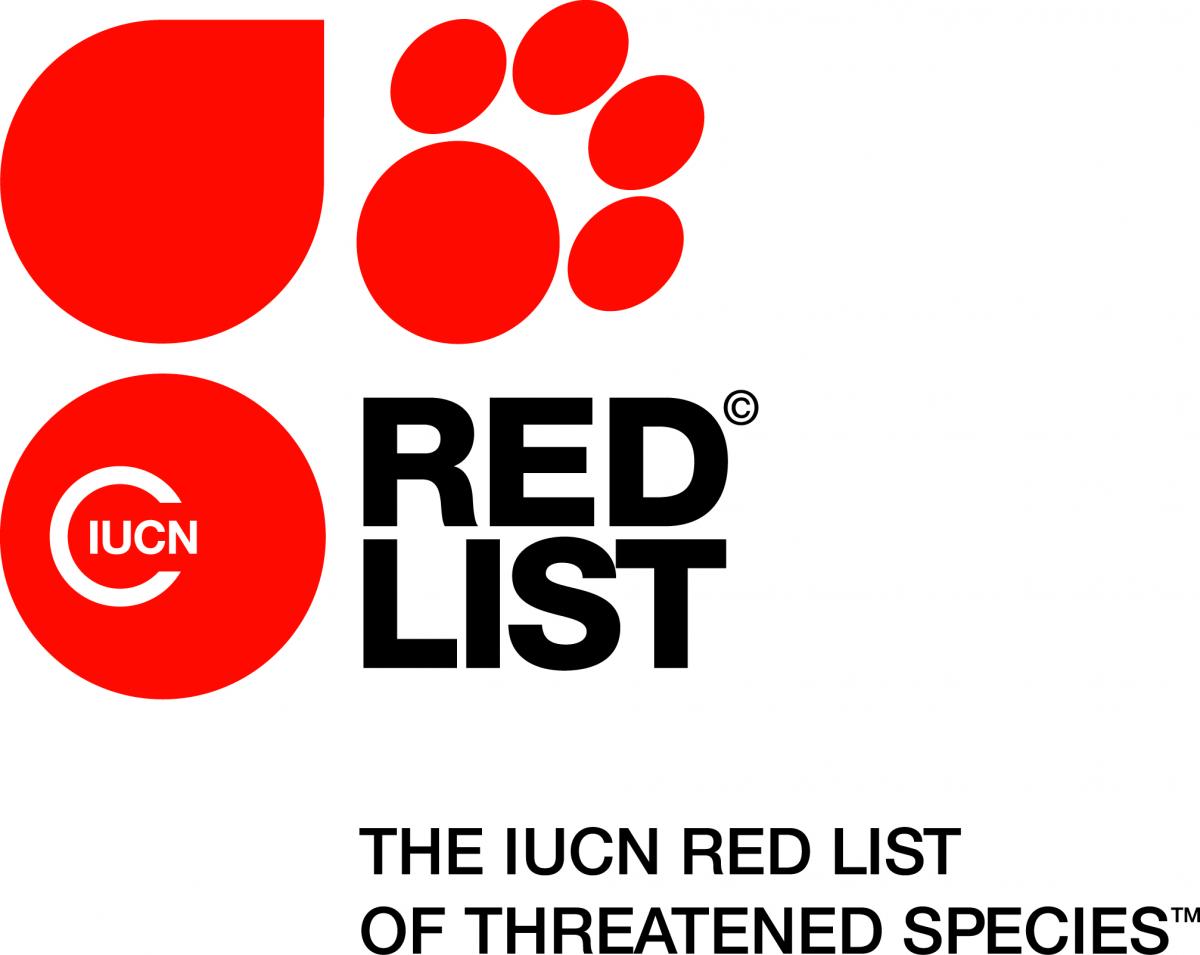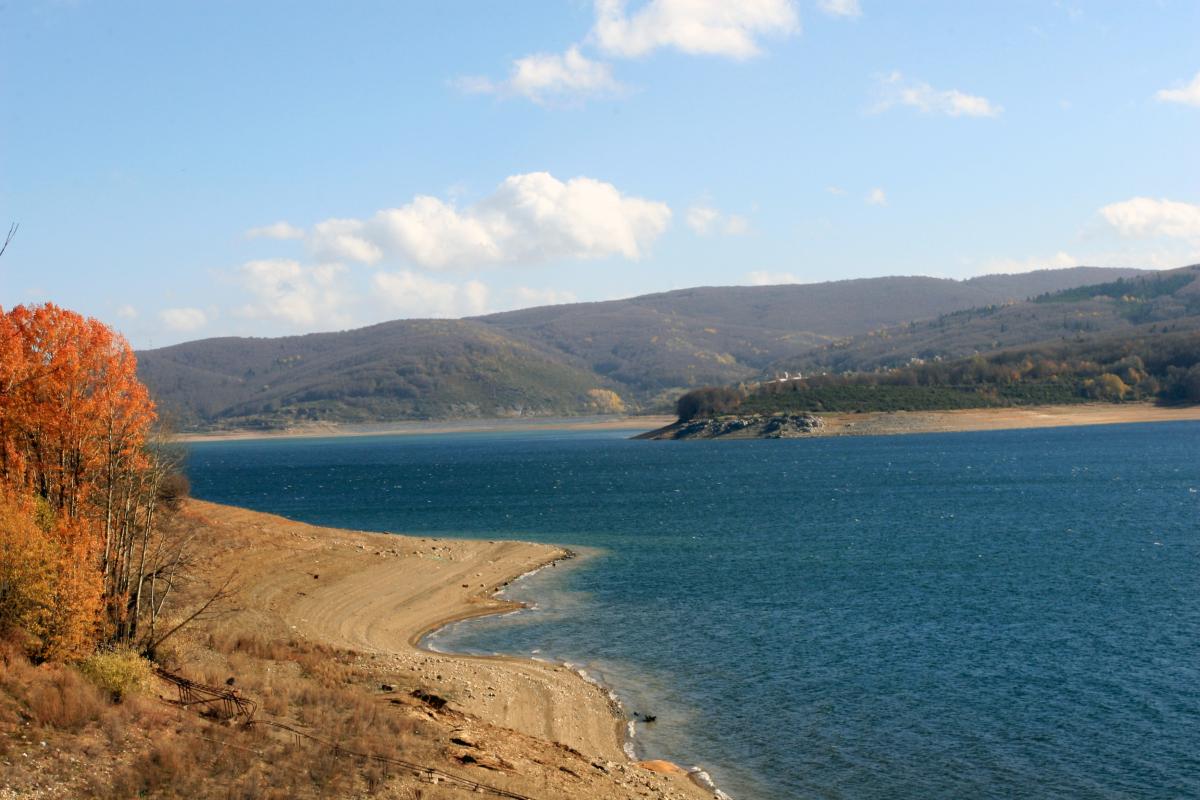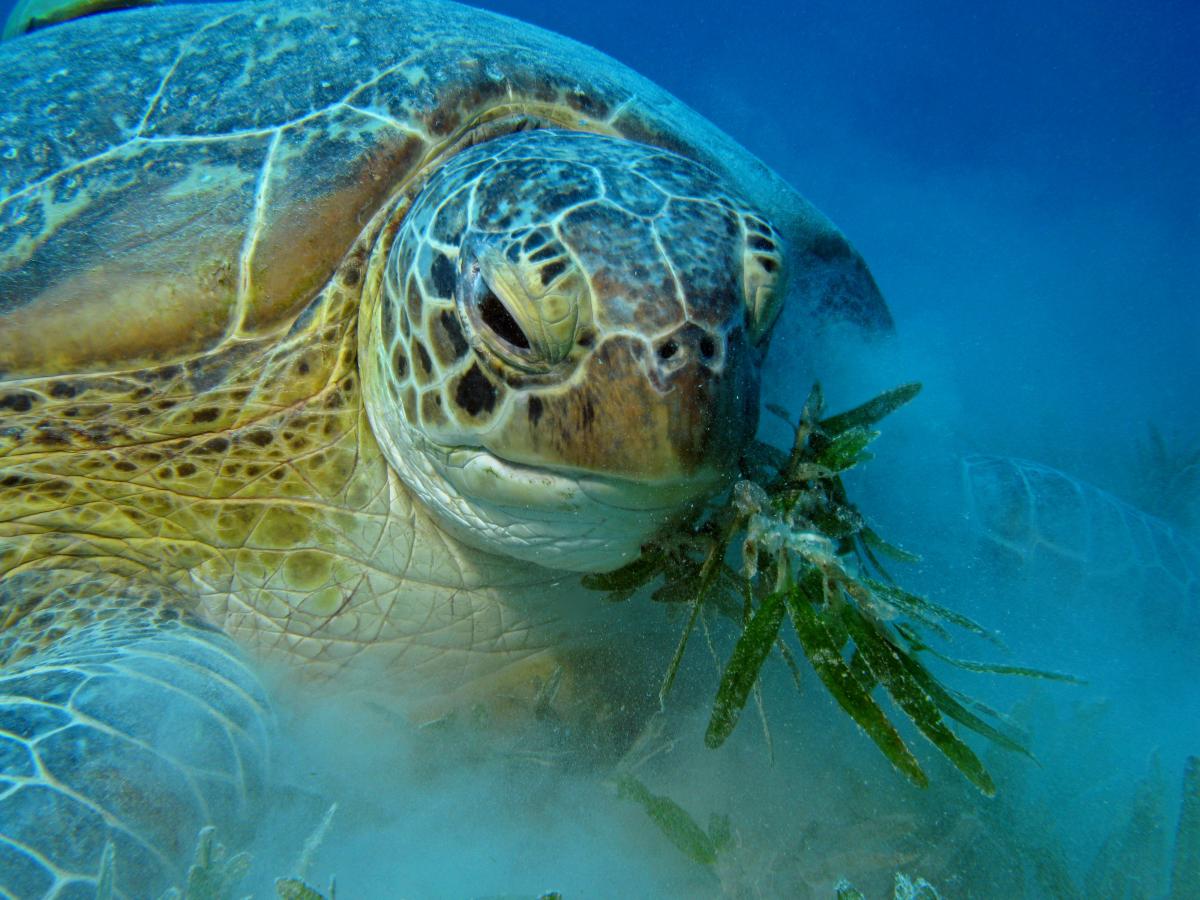National red-listing kicks-off in North Macedonia
Over 50 participants attended project launch of the ‘National red-listing in North Macedonia’, jointly organised by IUCN Eastern, Central Asia Regional Office (ECARO) and UN Environment in Skopje on 13 October 2017. Participants included representatives of the Ministry of Environment and Physical Planning, major universities and research institutes in North Macedonia, and numerous environmental NGOs.
The IUCN Red List categorises plant and animal species according to their risk of going extinct in the world. The IUCN Red List is an important tool for governments across the world to guide species conservation policies. However, such policies are largely devised on a national or regional scale, and for single countries or smaller regions in the world, basing these on the global IUCN Red List may not be effective. A species that is not of conservation concern on a global scale may be under great risk of extinction within a particular country or region. Hence, conducting national and regional Red List assessments is an important step in establishing effective national species conservation policies.
In North Macedonia, the conservation community has been on the lookout for opportunities to conduct national Red List assessments for more than 15 years. The global IUCN Red List contains 969 species that occur in North Macedonia, of which 110 are either Critically Endangered, Endangered or Vulnerable. In addition, the country is home to a large number of species that do not occur anywhere else in the world. This year, an opportunity arose, as IUCN ECARO was tasked with coordinating a national Red List project in the country as part of a larger scale UN Environment project funded by Global Environment Facility.
IUCN Red List serves to provide information and analyses on the status, trends and threats to species in order to inform and catalyse action for biodiversity conservation. Within South East Europe, few countries have developed national Red Lists, according to the National Red List website. Bulgaria published a Red Data Book in 2011, and Croatia and Serbia produced national Red Lists for Amphibians and Reptiles in the last two years. However, in most countries in the region, the development of Red Lists for guiding conservation policies has not been a priority.
At the project kick-off meeting in Skopje IUCN ECARO team gave a short background of the global IUCN Red List and highlighted the difference between global and national Red Lists, as well as the necessary steps to produce a national Red List according to IUCN methodologies and guidelines. One of the first steps in this process is the selection of relatively broad taxonomic groups whose conservation status would be a priority to be assessed. The IUCN ECARO team presented a preliminary set of criteria that a certain taxonomic group would need to meet in order to be prioritized. Making optimal use of the participants’ experience and knowledge, the importance of each suggested criterion was discussed in groups and initial weights were assigned to the selection criteria. The next steps include finalising the criteria and the actual selection of taxonomic groups.
Overall the project launch was a success, highlighting the determination within the conservation community of North Macedonia to move the red-listing project forward in a constructive manner. The project team and partners will endeavour to keep the momentum going.
For more information about the project is available here.
